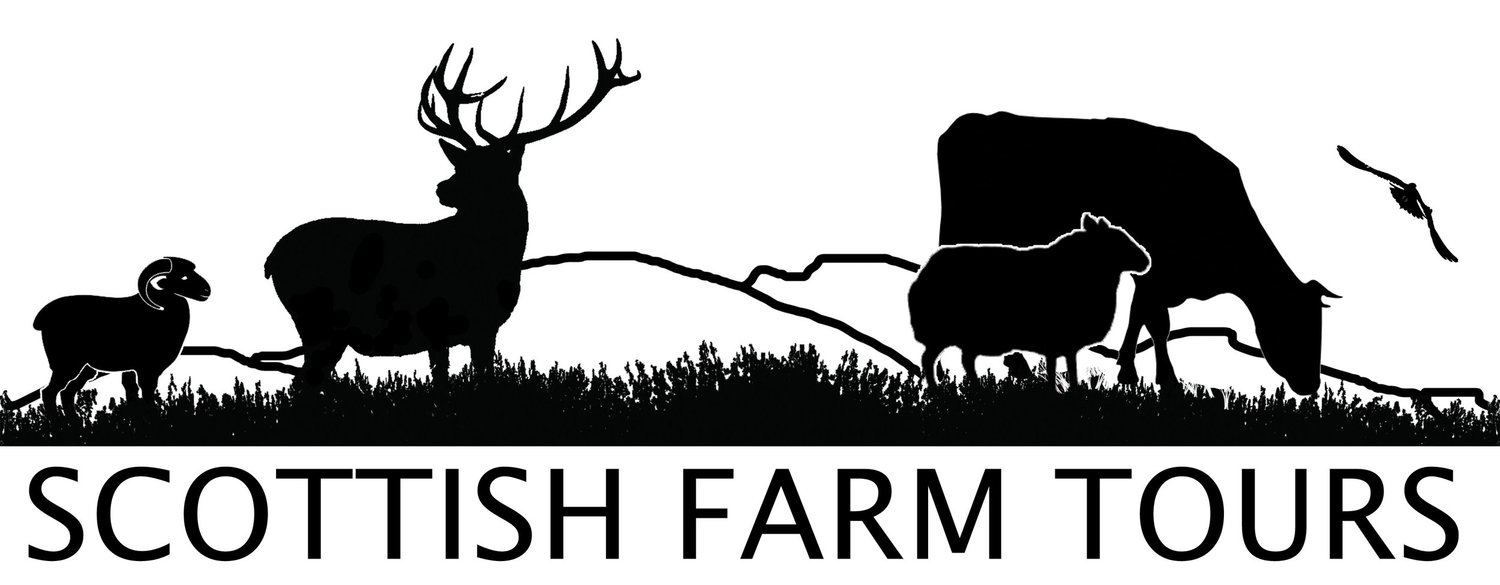As I write we have experienced the warmest and driest April that I can remember. For the past 2 weeks we have had frosty mornings and bright sunny days, ‘shorts weather’ for me! Primroses are in flower, often found on south facing wooded slopes where there is not much grazing. These warm comfortable environments are perfect for this pretty yellow flower.
First Primroses on Wild Farm
Primroses are often in less grazed areas, here beside the River A’an
I just hope this is not our summer, because with the Covid 19 lockdown still in place it would be a cruel world if once restrictions are relaxed there was no more sun to enjoy.
As a farmer the weather is never ‘quite right’ and I have to say it is pretty dry. Discing, harrowing, seeding and rolling fields for barley has been a dusty process and now the seed is in the ground we do really need rain to get the growing process underway. We are not arable farmers with acres of barley, we use it as a ‘break crop’ between reseeding with grass seed. The barley then gets used as feed for the animals over the winter.
A dry sunny month like this is brilliant for outside lambing and all of our young born ( Soay lambs, belted Galloway calves and wild boar piglets so far ) have benefitted from the warmth on their back. April can experience all sorts of testing weather conditions and driving rain, sleet and snow is always a killer for new born animals.
Newly born Belted Galloway calf
Our belted Galloway cattle have spent the winter, being fed silage down in fields beside the river and now that the spring calving has finished we move them onto higher ground for the summer. They know the routine and happily follow a bag of feed across the River A’an, along the road and up through birch woodland and onto the open hill. There are still quite a few calves to be born but they will be over the next few months. Although there is a warmth in the sun the grass is only just beginning to come through so we are still feeding silage for the time being.
Since mid February migrant birds have been returning to breed. Up here in the north of Scotland Lapwings ( peewits, peesies, green plovers this bird goes by many names ) are the first to arrive back in February. Flitting over the fields, pottering in the wetlands and finally finding a place to nest on the ground in April. Oystercatchers arrive next with the distinct black and white colouring long red beak and strident call ‘cleep cleep’, you generally hear them before you see them. The Curlew too have returned to breed and although mottled brown in colour their long curving beak and very obvious ‘curlew’ call is a give away. All three species have probably found nest sites by the end of April and so leaving the fields undisturbed is always a bonus for them until the chicks hatch.
Swallows came back at the middle of the month and we have plenty of nest sites here on the farm as we leave all our doors in to the old farm buildings open so the swallows can fly in and out to their nests. And then just yesterday I heard my first cuckoo, so they are back too before the end of the month to seek out an unsuspecting nest, probably of a meadow pipit, to lay eggs and leave the incubating, hatching and feeding to this much smaller bird.
So the migrating birds have returned but the rest of the glen is silent, with only tractors working fields, shepherds tending their lambs and local people going about their business. No visitors to come and stay in our local self catering cottage or indeed any local accommodation. Our farm visits, which have been so popular and bookings for this year were certainly coming in have all been cancelled. This corona virus pandemic has certainly taken its toll and when lots of marginal farm businesses have diversified away from pure farming to provide extra income from tourism this has been a huge blow to the local economy.
But across the country we are all in ‘the same boat’ and we must be patient and hopefully survive until lockdown can safely be lifted, a vaccine is developed and we can get back to our normal lives.
Tilly







